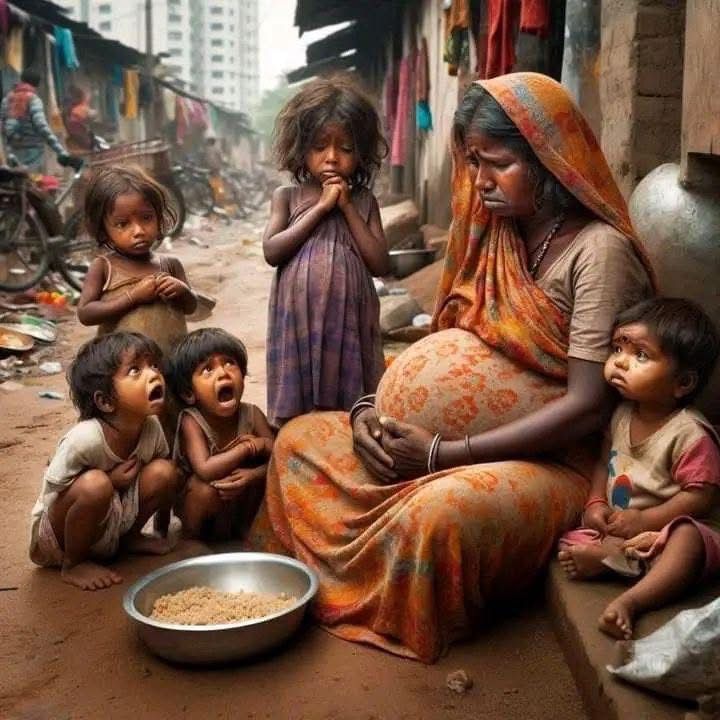I was a homeboy without many friends, raised in a Christian, conservative family.
All my life, I had never fallen in love with any girl in the village. Not because I didn’t want to, but because I hated the village lifestyle.
The thought of spending my entire life bent over in the fields, cultivating from dawn to dusk, was unbearable.
I had watched some of my age mates fall in love, get married, and then collapse under the weight of responsibility.
Marriage seemed to age them overnight. Jackson, who was my exact age, looked seven years older than me only five years after tying the knot. Frank, another one, had even built a small hut in his farm where he lived with his wife for weeks before coming back to the village.
Me? I still lived with my parents, enjoying the little freedom of my routine: going to school, then joining my parents in the fields, but without the pressure that married men carried on their shoulders.
Among my friends, I was often mocked. They called me a coward, afraid of responsibility. But I never saw myself as a coward. I dreamed of something greater: of moving to town for university, getting a real job, living in luxury, and one day marrying an educated woman, not one of the village girls.
Years later, when I was in high school, my father bought me a small phone. It doesn’t exist in the market anymore, but I remember it clearly: black with a red keyboard. He probably knew how much I loved red. I put in a memory card and started playing music on it. In the village, that was unheard of. To them, only radios could play music. But here I was, holding a tiny piece of the future in my hands.
That phone gave me hope. It was like a sign that my city dreams were valid. I even bought a blue shirt with the word TOWNSHIP printed on it, a reminder never to sell myself short. I used to tell my friends:
“I may look like I belong here, but I don’t. This village isn’t my final destination.”
Jackson would laugh and say, “Stop your pride. It takes only one day to fall in love here and join us in our miserable village life.”
Then came Facebook. And that’s where I met Kevine, a beautiful Rwandese girl who would change everything. The first time I sent her a message, it was simple: Hi. But she didn’t reply. Not the first week, not the second. It was only after my third attempt, when I finally wrote to her in Kinyarwanda— “Mwaramutse. Good morning.” that she replied, a full day later.
“Lol. Do Congolese people speak Kinyarwanda?” she teased.
I answered proudly, “Yes.” Even though, to be honest, I wasn’t too sure.
Later, she confessed she had ignored my first messages on purpose.
“I’m sorry for ignoring you,” she wrote. “The moment I saw you were Congolese, I almost decided there was nothing good to expect. We Rwandese only hear bad stories about Congo. I didn’t think there could be a good person there. So, tell me, what do you want from me, a Rwandese girl, while you’re Congolese?”
Her words stung. They cut deeper because they carried some truth. The relationship between Congo and Rwanda was fragile, poisoned by history, rumors, and politics.
Still, I gathered my courage and replied:
“Kevine, I think the real problem is hearing only one side of the story. And one side of history kills more than one truth. Sometimes, all it takes is understanding, or simply listening, to realize there is more.”
I expected her to block me. But she didn’t.
Instead, she wrote back:
“Wow. I had never thought about listening to what Congolese people have to say. I’ve only been fed one part of the story, mine. Thank you for giving me another way to look at this.”
And just like that, a fragile bridge was built between us.
The next day, while my little sister was playing with her girlfriends, one of them—Aurora—teased her:
“You know what? Your elder brother is abnormal. How is it that all his age mates have girlfriends, except him?”
That evening, after coming back from the farm, I sat in the kitchen with my whole family. My sister brought it up again.
“Brother, my friend Aurora said you’re not normal. How can you be alone with all the beautiful ladies in this village?”
Her words shocked me, but I stayed calm and replied firmly:
“No girl in this village can be my type. I can’t marry an uneducated woman.”
Then, almost without thinking, I added:
“I’ve already met the one I will marry, and she’s educated and beautiful. Her name is Kevine.”
They immediately wanted to see her picture and know where she lived. But I didn’t tell them she was Rwandese from Kigali. I knew what would follow; endless judgment and stereotypes.
They would say things like: “If you marry her, you’ll never have children of your own. You’ll end up raising another man’s kids. Rwandese cheat too much.”
Whenever they spoke like that, I used to challenge them.
“who told you that one nation cheats more than another? Who told you that one tribe is more faithful than another? Who told you that marrying from your own people guarantees loyalty? Stop that mindset-it’s poison. It destroys unity and plants hatred where there should be peace.”
I reminded them:
“Just because someone once had a bad relationship with a person from one nation or tribe, it doesn’t mean everyone from that place is the same. Let each person carry the weight of their own actions. Stereotypes must be banned among us.”
They often fell silent when I spoke like that, but I could see in their eyes that they still held on to their beliefs. That only pushed me to be clearer:
“You could even marry your cousin and still be betrayed. If someone carries the spirit of unfaithfulness, they will cheat regardless of blood, tribe, or nationality. Betrayal comes from the heart, not the passport.”
Two days later, I reminded Kevine of what she had once said about Congolese people.
“Kevine, we should both see things differently. Rwandese people are amazing. Congolese people are good too. The truth is, bad people with harmful intentions exist everywhere. Just because you fought with one Congolese in the market doesn’t mean all Congolese are the same.
In fact, sometimes a stranger can treat you better than your own relative.”
She stayed quiet at first, listening carefully. Then she began to tell me about the meaningless childhood fights she once had.
“Can you believe those same people are my friends today?” she said. “Now, when we fight, we apologize to each other.”
I smiled and replied, “Exactly. Every human being is incomplete, and that’s why we fight. But we must learn to apologize, forgive, and respect one another. That’s what keeps us together and protects peace.”
That day, our conversation lasted 45 minutes straight. We laughed at small jokes, shared serious thoughts, and felt like two people discovering the world together.
The next morning, Kevine surprised me with a message in French:
“Salut Monsieur, comment ça va ?”
I was impressed. I never knew a Rwandese girl could speak French so well. In my heart, I whispered: “The educated woman I’ve been searching for has finally appeared. It’s her or nothing.”
I replied, “Salut jolie fille. You can also speak French? I’m surprised.”
That’s when I learned she came from a wealthy family. Her parents had put her in a luxury school where she studied not only Kinyarwanda and English, but also French—and even a little Swahili.
My heart was racing. I felt something like a “chemical attack” in my stomach. I finally gathered courage and asked her to be my girlfriend.
Her reply was short, almost cold:
“Bye.”
That one word tortured me. I didn’t know what she really meant, but I felt sure I had ruined everything. For more than a month she didn’t reply to my messages. I kept liking her posts anyway, telling myself:
“Maybe I should just love her from a distance and settle for friendship.”
Then, at the end of that month, a message appeared on my screen. My heart jumped.
“Hello babe!”
For a moment, I thought she had sent it to the wrong person.
I replied nervously, “Hello Kevine. How are you?”
Instead of answering directly, she wrote:
“So, aren’t you going to stop calling me by my name?”
That single sentence was all the clarity I needed. Kevine had accepted to be my girlfriend.
From that day on, I started eating cold food. Not because there wasn’t hot food at home, but because our conversations were so intense and exciting that I often forgot the plate in front of me. The chemistry between us was real. No boredom, no silence, just two hearts running after each other.
After six months, Kevine told me she was coming to Congo, hundreds of miles from my home, to celebrate her friend’s wedding. My first thought was: “Kevine was so afraid of Congolese people that she would never even date one. Maybe she accepted me only after realizing her friend’s wedding was here, and she had nothing to fear?”
When I heard this, I made an excuse at home. I told my family I was thinking of starting a business and needed to go meet a partner. Deep down I knew I wasn’t meeting a business partner. I was going to meet my romantic partner. I freshened up that morning with a racing heart, knowing the day I had dreamed of was finally coming.
After a long journey, I arrived at Lushe where the wedding was held. The air smelled of dust and flowers from the churchyard. I saw the bride in her white dress, she was beautiful, but in my eyes no one compared to my Kevine.
It was in an Adventist church, as Kevine is a member of that congregation. When the time came for singing, she rose from her seat and grasped the microphone in front of hundreds of people.
The moment her voice filled the church, I froze. Warm, sweet, and angelic, I had never heard anything like it in my life. The lyrics spoke about love and how Jesus becomes the foundation of a home, but honestly, I could hardly pay attention.
My eyes were fixed on her. Her figure was so perfect that my eyes betrayed me, drawn to her curves, and I couldn’t help but imagine holding her in my arms, far away from the world.
After the wedding ceremony, we finally met. My heart pounded so hard I thought people could hear it. Warmth spread through me like sunlight breaking into a cold room, but I didn’t know what to do. “Do I hug her? Shake her hand? Just smile?” I was afraid of looking like a shy village boy who had never been in love.
But Kevine took the lead. With a bright smile, she kissed me on the cheek before hugging me. My whole body trembled with joy.
“Beba, why do you seem afraid? Is it tiredness? Or aren’t you happy to meet me?” she asked.
I blushed; embarrassed, afraid she might see me as a boy who didn’t know how to act around girls from the city. I forced a smile and said, “Not at all, my love. Please, sweetheart, wake me up. I think I’m dreaming.”
She giggled. “No babe, it’s me.”
We sat to talk, this time face to face, not through phone calls. I ordered milk and donuts, thinking maybe she wouldn’t like our village food. But she surprised me with her words:
“Babe, you can order anything from your people. I want to experience the food from my in-laws.”
Those words touched my soul. Immediately I told the waiter, “Bring us Ugali with Musobyo. And please, don’t forget the pepper.”
Kevine smiled and said softly, “Babe, this smells so good. I think I will like it. But can I ask you a favor?”
“Anything for you, mummy,” I replied.
With an innocent voice, she asked, “Please, can we eat from the same plate?”
Before she finished, I had already poured the Musobyo into one plate. How could I ever refuse her?
We ate together, laughing, and from that day she began to call me “My pepper-lips” because of the chili flavor. Afterward, we had a quiet, sweet moment. We hugged again, and as our eyes locked, I leaned closer, ready for our first kiss. The world felt like it was melting away.
But just before our lips touched, her friend Umutoni appeared and shouted, “Kevine, aren’t you a Christian? How can you try to kiss a man who isn’t your husband? Shame on you!”
Our first French kiss failed, and from that moment I hated Umutoni.
Kevine and her friends stayed four days in Congo for the wedding rituals.
The next day, I went back to the venue, hoping to see her. Unfortunately, I met Umutoni first. She greeted me, but I refused to respond and only smiled. I was still angry about the previous day.
After waiting some time without seeing Kevine, I asked her, “Can you please tell Kevine that I’m here?”
She frowned. “I thought you weren’t interested in talking to me.”
Her harsh tone made me snap. “I didn’t know Kevine could keep such a mean person as a friend.”
She replied in Kinyarwanda, “Ubwo nk’iki kirikuvaga iki?” probably thinking I wouldn’t understand. But Kevine had been helping me learn, so I did. I walked away, frustrated.
When Kevine finally came, she apologized sweetly: “Babe, have you been here for long? I’m so sorry.”
“It’s okay,” I said. “But your wicked friend refused to tell you I was here.”
Kevine defended her: “She’s a kind person. I don’t know what’s wrong with her since she saw you.”
We went for a walk in the pastures, surrounded by green hills and small towns in the distance. Suddenly, it rained. We had no shelter. Under the falling drops, we laughed and tried to kiss again, but it wasn’t easy in that condition. Pressed against me in the rain, I felt the warmth of her body, her chest against mine, and it set a fire inside me that no storm could put out.
On the third day, Umutoni came to apologize. At first, I thought Kevine had told her to. But later, I realized it wasn’t Kevine’s idea.
She said, “So, do you forgive me?”
“Of course I do,” I replied, though coldly.
She came closer, asking, “Then can you give me a hug? That’s how we show reconciliation in our culture.”
I hesitated, but then agreed. As I hugged her, Kevine appeared and saw us. Her eyes filled with pain.
“I thought you weren’t friends. How comes you are now hugging?” she asked. Her tone was calm, but her face told a different story.
Then she turned to Umutoni: “Oh, now I get it. You acted like my friend just to steal my man? My colleague in the choir? I can’t believe this.”
Without a word to me, Kevine walked away crying.
The last day came. I went to beg her, to explain. But she refused to see me.
Then Umutoni appeared with a smile and said softly, “See? We didn’t even do anything, and yet she panicked. Do you really want to end up with such a woman? I think we should make real what she thought.”
I stayed silent, shocked. She went on: “I loved you since day one, but I felt hurt when I saw you with her. That day you tried to kiss; I shouted only because I was jealous.”
When she moved closer, I shouted like thunder: “So all this—the apology, the hug—was part of your plan? You ruined everything. Get out of my sight!”
Kevine left Congo without seeing me again. I went back home with a heavy silence pressing on my chest. My heart felt like a broken drum that no longer knew how to beat.
When I reached home, I wrote tens of thousands of messages to her. None of them were replied to. She had blocked me.
Thinking that I would never talk to her again, never receive a message from her, I fell sick for almost two weeks. The despair of never seeing Kevine weighed on my mind. She had left and broken my heart into thousands of pieces.
“Where do I even find her? Even if I decide to search, I have no clue… I’m just a village boy,” I whispered to myself.
Six months later, a simple, dry “hi” appeared from her on Facebook. Instead of relief, fear struck me. My heart raced with a mix of hope and dread. Many questions flooded my mind, but I chose to focus on being honest.
I wrote:
“Babe, before you block me again, hear me out. Nothing happened between me and Umutoni. She only came to apologize for what happened. When I forgave her, she said only a hug from me could make her believe my forgiveness. That’s when you came. I’m really sorry, my love. You know how much I love you, and I don’t want to lose you. I couldn’t risk doing anything stupid that might split us.”
She read the message but didn’t reply for five long days. I spent that time reflecting on how love could make me so vulnerable. “So now I’m apologizing for things I didn’t do?” I muttered, amazed at how completely I was under her spell—this little gorgeous witch of mine.
Then, on a Saturday morning, a message appeared:
“Happy Sabbath, my sweetheart. We will talk when I come back from church.”
Hope returned like sunlight piercing a stormy sky. That evening, we talked, solved our differences, and continued our journey of love.
Kevine was simple, humble, and respectful. She never disrespected me, and when offended, she preferred walking away instead of fighting.
“Why do you always walk away when you’re mad at me instead of confronting me?” I once asked.
She smiled and replied: “Babe, you’re the king, and I can’t permit myself to disrespect you in any way. In Kinyarwanda, we say UMUTWARE. When you learn the language fully, you’ll understand the power this name carries. You’re the king, leader, guide; just as Christ is the head of the church.”
For a moment, I was silent, soaking in her words, feeling like the happiest man alive.
Years later, I went to Goma to continue my university studies. There, I kept talking to Kevine, promising to cross the border to see her, even though I had no papers to enter Rwanda.
In 2018, a French professor named Margaret came to teach but refused to cross the border, scared of Ebola virus and the news that painted Congo as dangerous. The university required everyone to have documents to attend classes in Rwanda. That’s how I got mine.
Weeks later, I decided to go to Kigali to see Kevine. It was a Friday.
In Kigali, I knew no one except Kevine. The bus dropped me at Nyabugogo. My Kinyarwanda was poor, and I barely knew what to ask.
I called her:
“Honey, I’m at a place called Nyabugogo.”
She couldn’t believe I had come all this way.
“Oh, my pepper-lips, you came? I’m in rehearsal at church, but once I’m done, I’ll come. Meanwhile, take a taxi to a hotel and rest.”
Hearing her call me “pepper-lips” the nickname she gave me after Umutoni interrupted our first kiss, made my heart race. It was as if she was reminding me that this time, our kiss would have no interruptions.
I called a taxi driver who asked me to pay 1,000 Rwf from Nyabugogo to the hotel, but I told him I would pay 5,000 Rwf, not mastering the language perfectly. Instead of asking for a discount, I gave him more than he asked and he accepted the extra money.
“Congolese people, you’re so kind. May God bless you, sir.” he said.
His praise of my nation surprised me, but I didn’t care. “It’s just because I gave him extra money,” I thought.
In the evening, Kevine arrived. She ordered some whisky for us and food before coming into my hotel room. I had fallen asleep and she didn’t want to wake me up. Later, I woke and found her close to me, staring.
“Babe, you’re already here? Oh my gosh.” She smiled softly. “Sweetheart, you’re a beautiful gift sent to me from heaven.” She smelled so good, a scent I would never forget.
We hugged for three minutes, and I felt the warmth of her body against mine.
After a few minutes, someone knocked on the door with a special meal. We had eaten together before, but they brought two bottles of whisky. I sipped mine quickly while she struggled with hers. I could see she just wanted to talk, to spend as much time with me as possible.
“Why aren’t you drinking?” I asked.
“Sorry for what happened in Congo. I still feel terrible about it,” she said, avoiding the question.
“This is my second glass, and you’re still on your first,” I said.
“Women shouldn’t drink too much alcohol. I bought this for you, babe,” she said, gazing into my eyes. We sat side by side, backs resting on the hotel sofa.
Then I said, in a mumble, “Maybe we should take another room,” Kevine didn’t mind to stay with me in the room.
But she knew I would not take another room and that when she stretched out on the bristly carpet, I would lie next to her.
She kissed my lips.
I pulled her forcefully close, and then, just as quickly, I let go and moved my face away. She could hear my rapid breathing. She unbuckled my trousers and moved back to pull them down and laughed because they got stuck at my shoes.
She took her dress off. I was on top of her and the carpet pricked her naked back and she felt my mouth limply enclose her nipple.
It was nothing else but only the pleasure she felt. I ran my tongue over her in that flicking way that made her forget everything; when I kissed her belly, she wasn’t aware that I was kissing her belly.
Everything changed when I was inside her. She raised her hips, moving with me, matching my thrusts, and it was as if she was throwing shackles off her wrists, extracting pins from her skin, freeing herself with the loud, loud cries that burst out of her mouth when she was moaning that night in the hotel room.
Afterward, she felt filled with a sense of well-being, with something close to grace and said “My pepper-lips I love you over the moon.”
A week later, she rented an apartment so we could live together. She wanted to cook for me every day and enjoy our space freely. We stayed three months together, three months full of happiness and grace.
Then a family emergency called me away, and Kevine went to the United States. We lost contact. I don’t know where she is, what she has become, or how to find her.
There’s a saying: “After a man has known you sexually, he can’t marry you.” Maybe that’s true. But if I met Kevine today, I would marry her. What keeps a man after everything is not just intimacy, it’s your values, your character, and how you love.
Please note: This is just a romantic fictional piece, not a reflection of my personal life. And any resemblance to your real life is purely coincidental.





